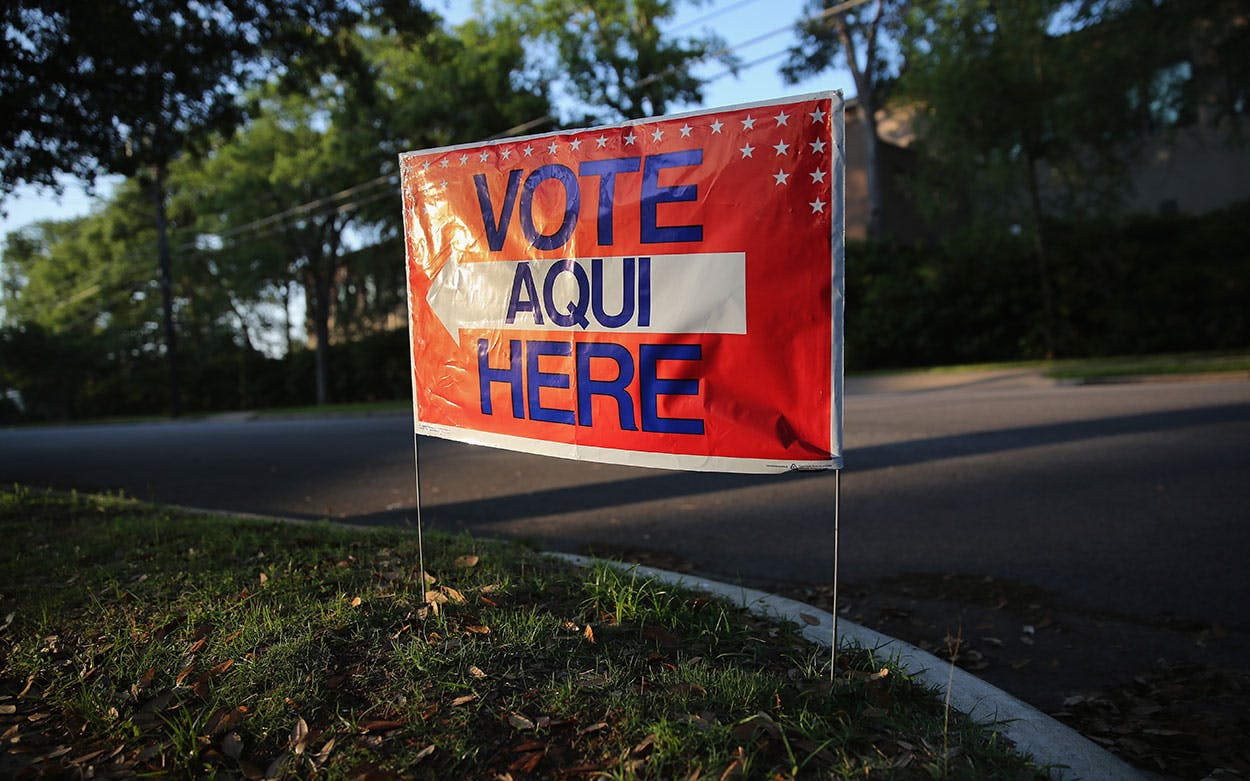Both Democratic and Republican early voting in the first seven days is surging beyond 2014 levels, but it isn’t stemming from people age 30 and under, according to an analysis by Republican consultant Derek Ryan. “People born in 1988 or later make up a whopping 4.7 percent of all voters who have voted early,” Ryan wrote in a report released Tuesday.
That’s not a good start for a generation that this year will surpass baby boomers as the largest age-eligible bloc of voters, and one that has had a poor turnout at the polls. But not all Texas millennials are letting their generation down. When Ryan expanded his data to include voters born in 1980 or later—the generally accepted range for the millennial generation—the percentage of the early ballots cast goes up to 10.8 percent of the total, or a little less than 11 votes out of every 100 ballots.
Among that group, there is a stark difference between the parties. Just slightly less than 7 percent of the Republican primary early vote is being cast by millennials, compared to more than 17 percent among Democrats.
Even with that, voting in Texas still appears to be a habit of an older generation. Ryan found the average age of primary early voters for Republicans and Democrats is 65 and 58, respectively.
As of the end of the day Monday, early voting in the Democratic primary was 226,182 votes—exceeding the turnout of the 2016 presidential primary by more than 15,000 ballots. If you need further evidence that the Democratic party truly woke up this year, current early voting is counting 107,185 more ballots than were cast during the first seven days of early voting in the 2014 Democratic primary. One big difference is there were almost no contested primaries for statewide, congressional, or legislative offices in either 2014 or 2016, and almost every race has multiple candidates this year.
Significantly, 6 out of every 100 Democratic primary voters previously voted Republican. Another 19 out of every 100 voters is a person who votes in general elections, but not primaries, according to Ryan’s data. This might well signal a real backlash to President Trump and the national Republican party, but it is too early to know whether this sets the stage for a general election trend or is merely a reflection of the most politically motivated people in Texas.
The total turnout for this year’s GOP primary for the first seven days was 215,440, almost 54,000 fewer ballots than the contested 2016 primary between Texas Senator Ted Cruz and eventual Republican presidential nominee Donald Trump. However, the Republican turnout is running far ahead of either of the past two non-presidential year elections. So far, Republicans have cast 32,459 more votes than they did at this point in the early voting of 2014. About 11.5 votes out of every 100 in the Republican primary are coming from people who have not voted in the party’s primary in any of the past four elections.
To do the new analysis of the early voting turnout, Ryan builds off of a Texas Secretary of State database of who voted in which elections. The database does not tell anyone how you voted, but it does reveal the names of who votes in party primaries and general elections. He then receives a daily report from the election administrators in eighteen of the top Texas counties to compare current voters to past voters with an eye toward spotting trends. I use additional state data to augment Ryan’s report. Ryan’s daily tracking of the early vote is available by email at: http://www.ryandata.com.
To contact R.G. Ratcliffe:
[email-hidden]
512-320-6961
- More About:
- Politics & Policy






